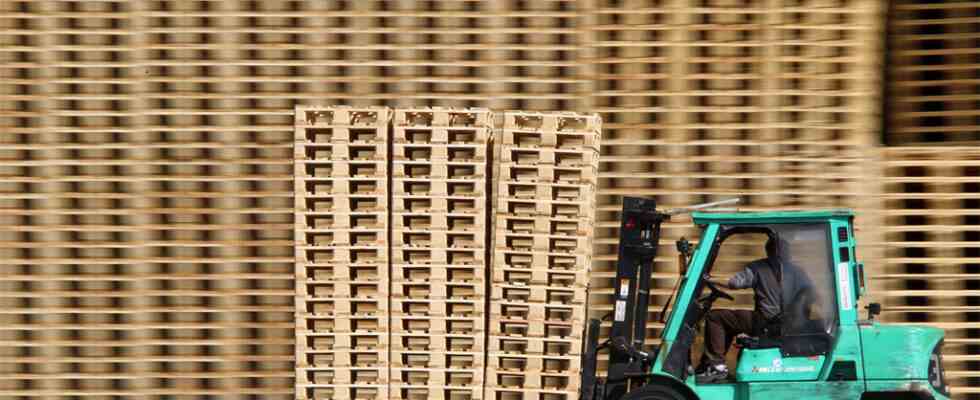Status: 09/26/2022 12:20 p.m
The mood in the German economy deteriorated considerably in September. The ifo business climate index fell to its lowest level since the beginning of the corona pandemic.
The ifo business climate index fell to just 84.3 points in September after still standing at 88.6 points in August. Economists had expected an average of 87.0 points.
The level now determined is the lowest since May 2020 at the beginning of the Corona crisis, as the Munich-based ifo Institute announced in its survey of around 9000 companies. “The German economy is slipping into a recession,” said ifo boss Clemens Fuest. “Pessimism about the coming months has increased significantly.”
In the survey, the companies rated their ongoing business as “clearly worse”, and pessimism regarding the coming months had increased significantly. According to the ifo, expectations in the retail sector even fell to a historic low.
Bad mood in other areas too
The prospects also deteriorated in other areas. In manufacturing, the index fell “noticeably” – companies were less satisfied with current business in September than in August and are looking “with great concern” to the coming six months, as the economic researchers explained.
In the service sector, the index “crashed”. According to the ifo, the companies’ assessments of the current situation were significantly worse, and they expected a further deterioration in the coming months. The hospitality industry in particular fears difficult times.
In retail, the current assessments of companies turned negative for the first time since February 2021, as the ifo announced. The prospects continued to darken.
Finally, in the construction industry, companies were less satisfied with current business; their expectations were more pessimistic than in August.
“We see a big minus on all fronts,” said ifo economic expert Klaus Wohlrabe in a Reuters interview. “The energy-intensive sectors in particular are extremely pessimistic about the winter.”
Warning of “economically difficult winter”
The entire ifo index signals more than ever a recession in the winter half-year, emphasized Commerzbank chief economist Jörg Krämer. The energy price shock is causing consumers’ purchasing power to collapse and making the production of many companies unprofitable. “Germany has become poorer due to the massive increase in the price of energy imports,” said Kramer. “We are facing an economically difficult winter.”
“It is therefore high time for political stabilization measures,” commented Jens-Olier Niklasch from LBBW. “Companies and households must finally regain planning security when it comes to energy – prices and availability. Most companies and households are now aware that they will be faced with major costs.” Nevertheless, at least a certain upper limit of the total load should now be recognizable, demands Niklasch.
“In the short term, due to persistently high gas and consumer prices, supply uncertainty, geopolitical risks and rising interest rates, there is no indication that the mood in the German economy will soon be on the road to recovery,” explained Helaba’s Ralfcircul. “This will hardly change the ECB’s plan to raise interest rates in the short term, because an economic downturn is accepted.”

